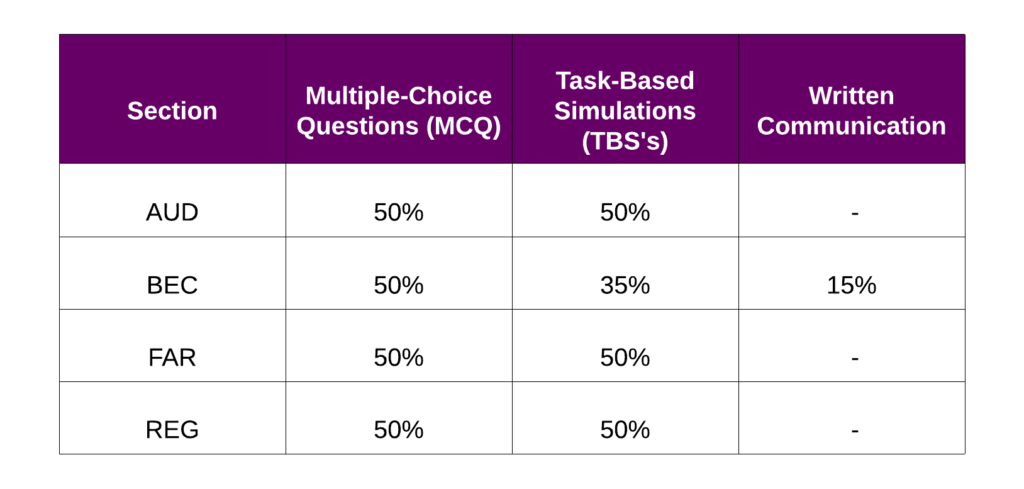In order to pass a section of the CPA exam you must score a 75% or greater, determined by the AICPA Board of Examiners. The passing score is determined using data from various studies, historical trends, outside parties, (such as NASBA and licensed CPA’s) and exam content changes. Test scores are not curved, and the score you receive does not represent your overall percentage correct. Your score for each section of the test is a weighted combination of scores based on various factors such as whether you answered the question, task, or scenario correctly as well as how hard that question, task, or scenario was.

Multiple-Choice Sections:
For the multiple-choice section of the exam a multistage adaptive test delivery model is utilized. This means that the more questions you answer correctly, the harder the questions become (if you don’t perform well the level of difficulty will remain the same). So, if the second multiple-choice testlet you receive appears to be more difficult, this means that you performed well on the first testlet. Additionally, this means that although you may be answering less questions correctly in the more difficult testlet, the questions are weighted differently. There is not advantage or disadvantage to this model of scoring, as the questions are weighted based on difficulty of the question.
Task-Based Simulation Sections:
Both of the multiple-choice sections and the task-based simulations are scored using a fully automated process. The written communication portion is largely scored by a computer grading program, set by human scorers. However, if you are within a certain threshold of passing, your written communication portion will be rescored by human graders to ensure your exam is graded as accurately as possible. If more than one human grader grades your written communication, then the average of your scores will be taken. Whether automated or not, the scoring procedure is substantiated and tested throughout various stages of process to assure testers that their score is as fair as possible.
Pretest Questions:
Embedded in each section of the CPA exam are what are referred to as pretest questions. These are questions that are included in the exam as essentially practice questions, and they do not count towards your score. They are included for the purpose of collecting data on the quality of the question/task/scenario as well as to collect scoring information on the question if it is to go live within a test in the future. However, there is no way to decipher the pretest questions from actual questions, so never assume a question is not going to count towards your score.
Bottom Line:
Knowing how each exam is tested is beneficial for the test taker but try not to think about it too much during the test. Trying to identify pretest questions or analyzing whether your second multiple-choice testlet is harder or the same as the first is honestly a waste of time and energy that could be spent focusing on the content of the test. Scoring is out of your control, so be cognizant of the grading procedures, but concentrate on answering as many questions as you can correctly and completely.
